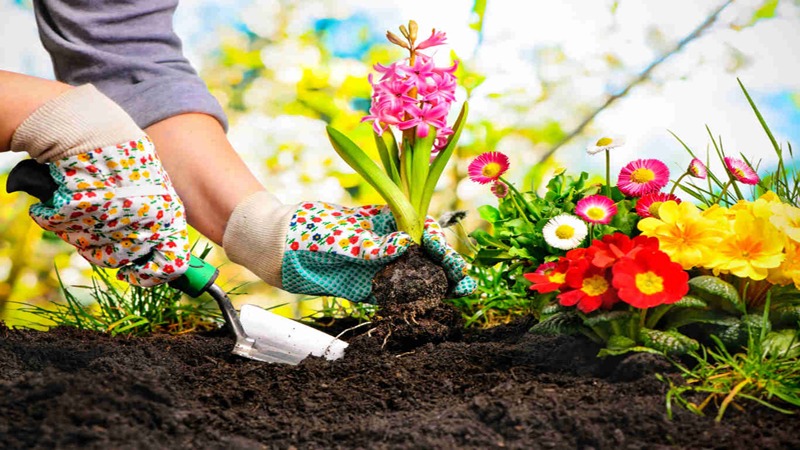
Poor organic gardening can negatively affect you, both physically and emotionally. You need to do a lot of your research, so that you don’t waste money, time, and resources on improperly growing your garden. There are some tips listed below to help you start properly growing the ideal organic garden.
A great gardening tip is to water your garden at night time. This ensures that the heat of the sun does not cause the water to evaporate, allowing for maximum absorption. This will help your plants get the appropriate amount of water they need in order to grow.
Planting a bare-root rose. Bare-root roses are best planted at the beginning of their dormant period to lessen the shock of transplanting. If the roots look dry, soak them in a bucket of water for a few hours before planting. Remove diseased or damaged stems, and trim any thick roots by a third. Place the rose in a freshly dug hole, spreading out the roots and checking that the bud union is slightly above ground level. Backfill with soil and water thoroughly.
When uprooting a perennial plant, you should start digging at its drip line. Dig a trench around the plant, and cut any roots that extend beyond that trench. You can tie stems together to avoid damaging the plant during the process. Once all the roots are severed lift the plant carefully by its main stem.
Protect your seedlings from frost with clay pots. Early spring is a perilous time for a new garden. You want to get your plants going as soon as possible to ensure plenty of grow time, but a single frost can wipe out your fragile seedlings. To protect your tiny plants from frost at night, simply place a small, upside down clay pot on each seedling. They will insulate from the cold and protect from the wind.
Health
Although railroad ties may look very nice in your garden, the chemicals in them, are thought to be hazardous and toxic to the health of the garden, so consider alternatives. Natural wood is easy to find and will add a beautiful touch to your garden.
Don’t assume that insects are to blame for all plants ailments. There are many things that can affect the health of a plant. The PH of the water you are using, the location of the plant (under shade vs direct sun), the amount of soil in the pot and several other reasons can be a determining factor.
Clean your garden tools before you put them away. It seems strange to worry about keeping a gardening tool clean, but it’s actually very important for the health of your plants. Tools that are put away while coated in dirt can harbor microbes and even insects that can be deadly to your plants.
An important prerequisite for having a successful garden, is preparing the soil for your seeds or seedlings. Poor soil grows poor plants. One way to obtain rich soil is to buy or make organic compost and mix it into the soil that you plan to plant the garden. You can also add manure to the soil to make it more fertile. It is wise to refrain from using chemical fertilizers, since they can burn your crops and also be harmful to your health.
Poor organic gardening can be very troublesome, but with some work and some patience, you can grow a better garden. It just takes research, hard work and patience to start seeing the “fruits” of your labor. Do yourself a favor and try using the above tips to help grow a beautfiful organic garden.
